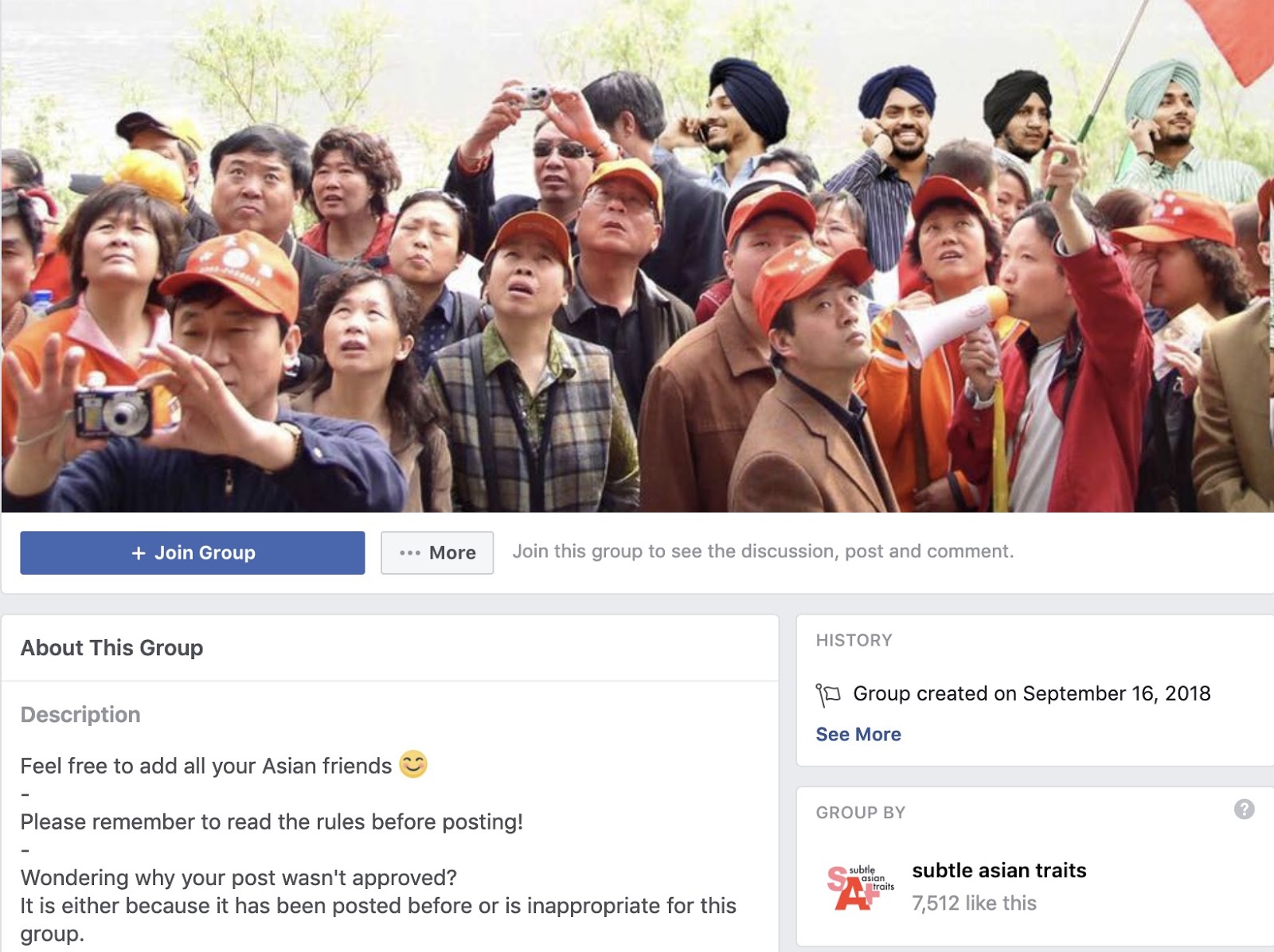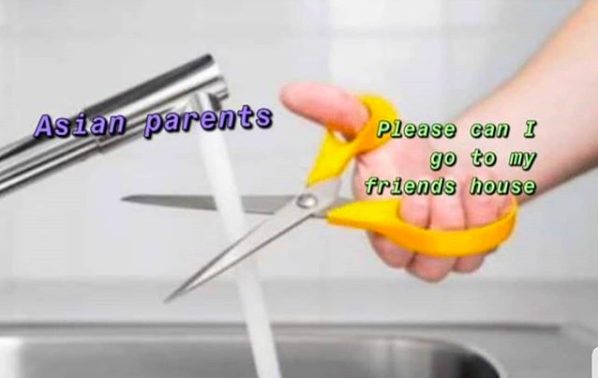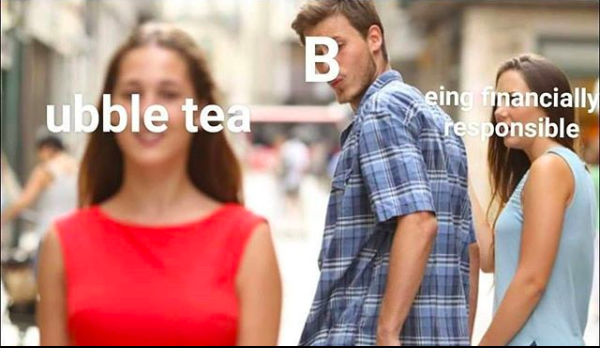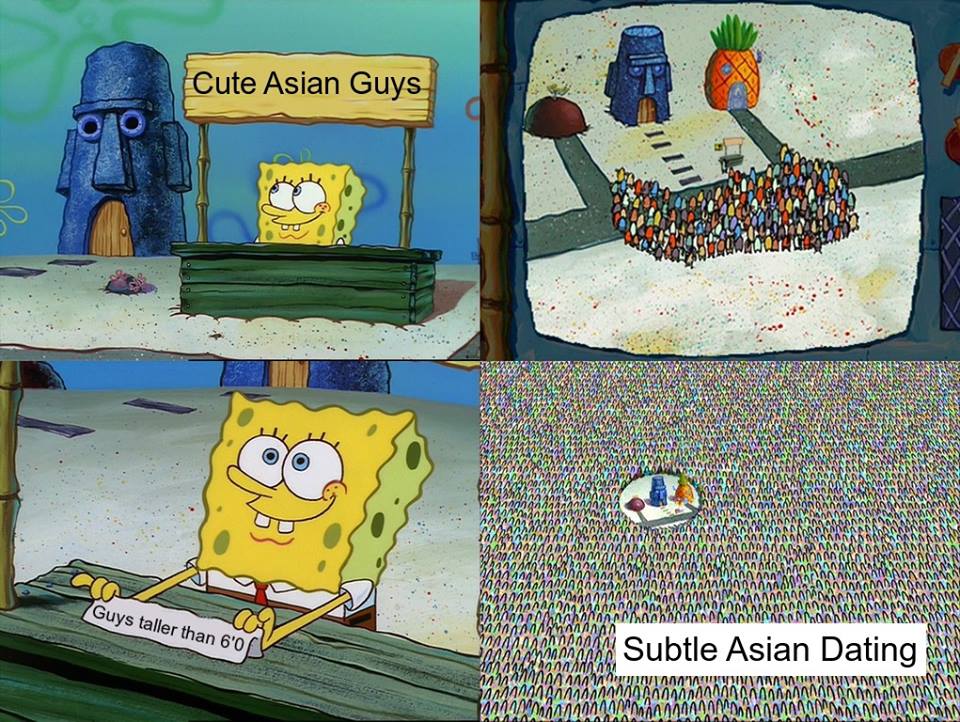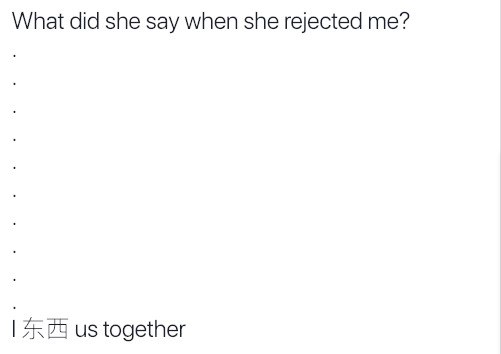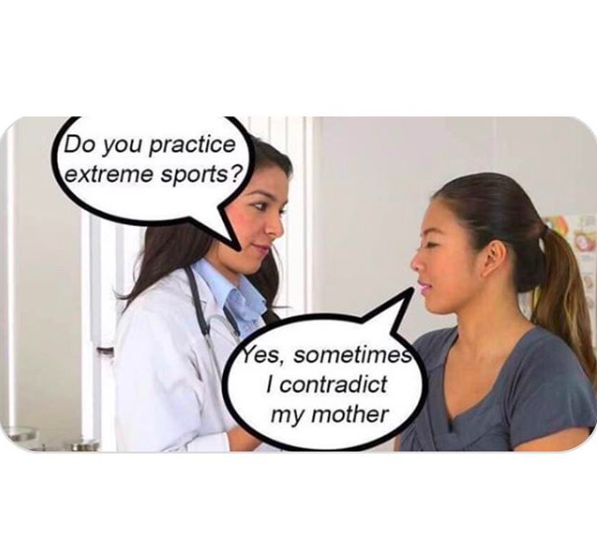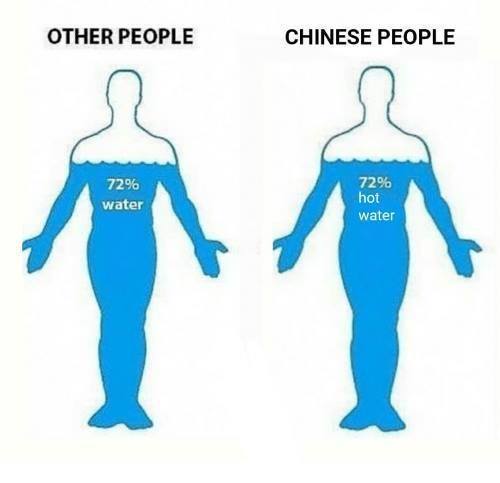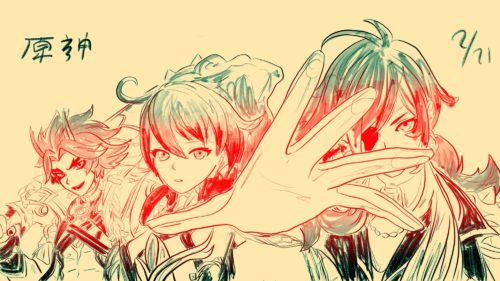Subtle Asian Traits: The Facebook group rallying Asian youth around the world
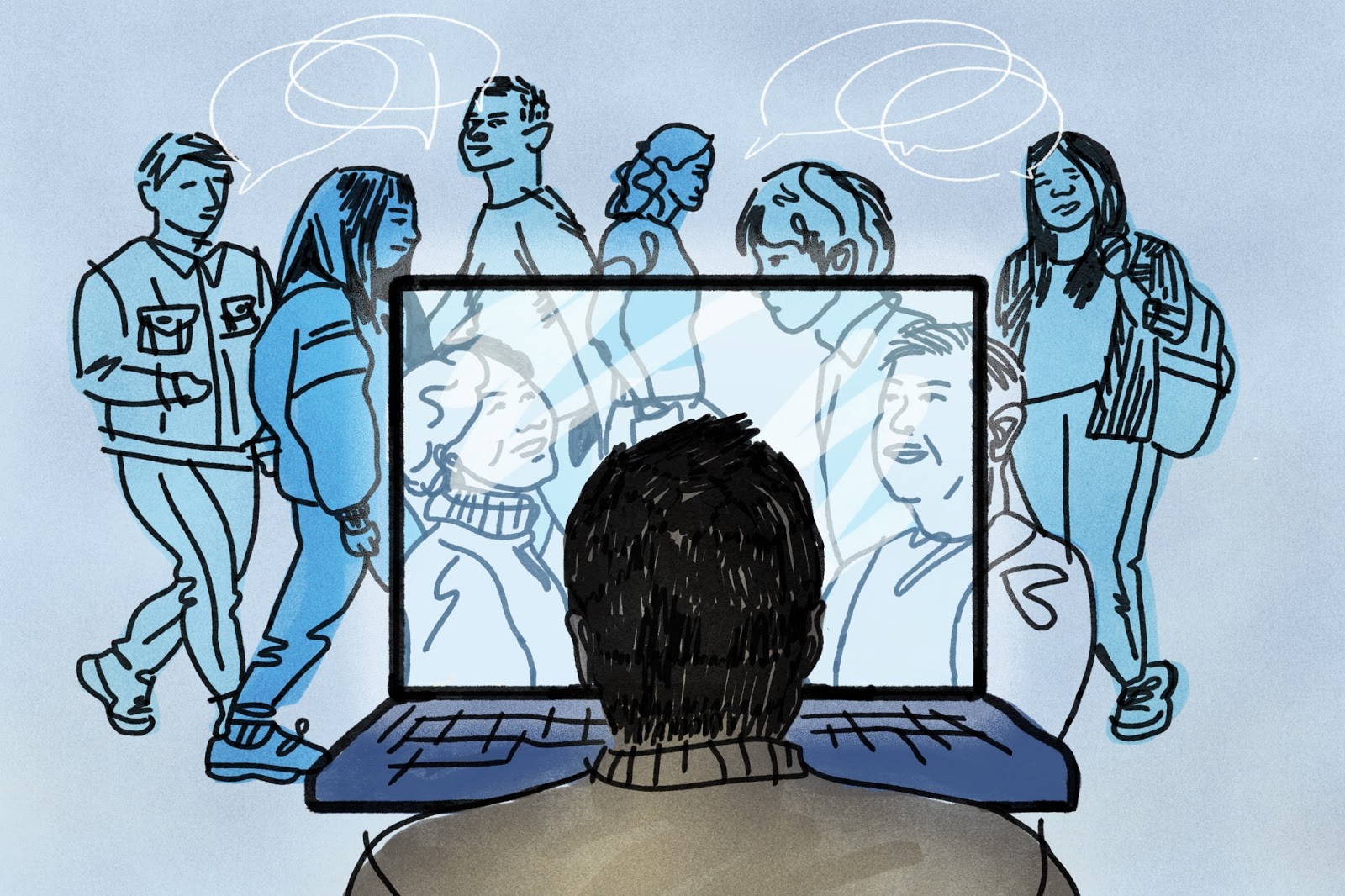
What began as a closed group amongst Chinese Australian friends has ballooned into a community of more than 1 million people, with numerous spin-offs big and small.
It alternates between bringing the diaspora together and splitting it apart.
Illustration by Anna Vignet
For Anne Gu, born and raised in Melbourne, Chinese school on the weekends was a “rite of passage” of sorts in her Chinese Australian community. She made many close friends there, and in September 2018, she and 12 of those Chinese school friends made a Facebook group. They called it “Subtle Asian Traits,” after a popular Australian Facebook group called “subtle private school traits,” where kids who had gone to private school could share experiences common only to them. Gu and her friends used the group to share memes and funny posts with each other about growing up Asian in a Western country.
Here and there, they let more people into the group, and soon, membership began snowballing. And then it became an avalanche, with more than 1 million members from across the world. “We never expected for it to grow this big,” said Gu, who had just graduated high school and was awaiting her college entrance exam results when we spoke on the phone in December. She noted that Americans and Australians make up the majority of the group, though members hail from across Europe and Asia as well. Of course, few members are from mainland China, where Facebook is blocked.
When the number of Americans in the group first surpassed the number of Australians, there was “a bit of a rivalry,” Gu said. But the group has since transcended that. “We’re not Asian Australians or Americans, we’re all just Asians in a big Westernized society, all merged into one category. We have the same names, the same traditions, the same struggles,” she said.
What exactly are subtle Asian traits? Are there subtle characteristics or habits or lifestyles that aren’t immediately perceptible to the Western eye?
“I’m more Australian than Chinese, but I definitely still have Asian traits in my everyday choices,” Gu said, laughing. “I mean, finding stuff on sale, not wasting plastic bags, that kind of thing.”
Andrew Huang, 22, who works in finance in New York City, was added to the group by his younger sister, and for a while couldn’t bring himself to reply to the memes she sent. “I was way too rattled inside,” he said. “It was the most relatable thing I’d ever seen…I couldn’t believe people could isolate the most precise things — down to a granular level — about your childhood.”
That was what propelled Subtle Asian Traits — slyly abbreviated SAT — to global internet fame. Memes on the group make use of Chinese pinyin or spelled out Tagalog or romanized Vietnamese to deepen inside jokes. The variety of memes mentioning boba addictions are endless. And then there are the ones that really hit home: the ones that not only showcase how Asian upbringings in Western countries are different from non-Asian upbringings, but how similar many Asian experiences of growing up are to each other, from Australia to the United States to Canada and beyond.
“I mean, down to the same brands of chili oil that’ve been sitting in my family’s fridge for, like, 10 years,” Huang said, laughing.
A friend added Erica Wu, 22, a software engineer at Facebook, to Subtle Asian Traits while she was at work. Wu remembers scrolling through the group with confusion. “I was like, what is this? And my friend said, ‘Don’t worry, it’s golden.’
“And then, within a few weeks, everything on my timeline was Subtle Asian Traits.”
The group’s sheer size means that admins and moderators, many of them still students, spend hours of their days combing through and approving posts, and moderating comments. And the posts and comments do need moderating — although at heart SAT is a meme group, and meant to be lighthearted, the gathering of a million members of any global diaspora will, unsurprisingly, produce tensions, disagreements, and controversy. Ai-Ling Khoo, also from Melbourne, currently works as a nuclear medicine technologist, but spends at least an hour a day moderating SAT content.
With so many members from so many cultural backgrounds, SAT has become ground zero for political and social issues endemic and specific to the Asian community at large, including racism, colorism, homophobia, and transphobia. In September, when the group was just starting out, the admins recruited Khoo, who was a friend of a friend, to join the moderating team. The admins only sought people they “knew they could trust,” said Khoo.
Khoo has witnessed the meteoric rise from the inside, seen posts of questionable content, and mediated disputes privately over Facebook Messenger. “I just thought it would be a bit of fun,” she said. “I obviously didn’t know it would explode as it has.”
SAD and other spinoffs
“Explode” is a good way of describing the proliferation of countless spinoff groups. The memberships of these groups vary from hundreds to hundreds of thousands, though none have yet reached the size of the parent group. The vast majority of spinoff groups also start with the word “Subtle.”
Prominent ones include Subtle Curry Traits (and Subtle Curry Dating) for the South Asian population, as SAT can skew in favor of East Asian cultural references. There’s also Subtle Asian Mental Health Support, with more than 13,500 members, which aims to address how the particular mental health needs of Asians — especially those who grew up in non-Asian countries — are often different from those of their Western counterparts. “Mental health is extremely important, and as Asians we tend to be brought up to not talk about it or even acknowledge any psychological problems,” the group’s 10 admins wrote in the group description.
But the largest spinoff group, by far, is Subtle Asian Dating — or “SAD” — a community of more than 360,000 members. Like Subtle Asian Traits, Subtle Asian Dating is a space for memes about growing up Asian. However, as its name suggests, there is a practical element to it as well: perhaps if Subtle Asian Traits is a space where people throw out memes and relatable content, then Subtle Asian Dating is better described as a marketplace.
Recent college graduate Daniel Ouyang, 20, joined Subtle Asian Dating after seeing promotional posts for the new group in SAT. Ouyang, who was born in China but grew up in Sydney, said that Asians who grow up as minorities in non-Asian countries often feel pressure to find someone of their own heritage or of a similar background. He often heard such talk from his grandparents when he was younger, although eventually his family told him they were open to whatever made him happy.
But then Ouyang eventually came to realize that he did want to find someone who grew up like him. “I’ve dated Europeans and Westerners, and I’ve always felt like I connected better with Chinese,” he said. “Definitely Asians over Westerners, but more importantly, Chinese over everyone else.”
Knowing this, Ouyang briefly tried using Tantan 探探, China’s response to Tinder, but soon found that the app wasn’t a fit. Ouyang, describing himself as “second-generation,” found that he also wasn’t connecting well with Chinese nationals from the mainland. When he found Subtle Asian Dating, he felt that it “fit all of [his] criteria.” The members of the group are still, to whatever extent, in touch with their Asian heritages, but have also been influenced by Western culture and speak English.
Members of Subtle Asian Dating are encouraged to “auction” off their single friends by writing a profile for them that includes their pros and cons. Many posters take advantage of this format to roast their friends. Even though this levity can at times seem to undermine the group’s stated purpose, it throws into relief the absurdity of searching for love on Facebook. Posts in SAD often take on a recognizably “Asian” quality, highlighting qualities such as one’s financial situation, level of education, and language abilities, however jokey these posts may be. Posts vouch for individuals as “guaranteed to please your parents.”
SAD allows open posts — reminiscent of classified sections — and has drawn comparisons to China’s public “marriage markets.” In a funny reversal of the common parents-seeking-for-children marriage market setup, Richard Wu, 21, a junior at Binghamton University in New York State, made a post for his single mother in January. The post, which asked for serious inquiries only, went viral, with more than 5,800 likes and 1,000-plus supportive comments.
Wu was inspired to make the post after seeing how SAD members seemed to be getting more and more creative with their ads for friends. “Some of these posts were amazingly funny and revolutionary…and I guess I unintentionally did the same — with my mom,” Wu wrote me. “I’m pretty close with my mom. In my family, it’s just my mom, my brother, and me…I created the post to try to find my mom some companionship because she is kinda old already. She doesn’t really know how to use dating apps, and I wouldn’t want her to, either.”
But despite the post going viral, Wu didn’t receive any serious inquiries for his mother. The likeliest reason? The group’s members are primarily in their 20s. The most Wu received were a few messages from others who were thinking about doing the same thing for their own parents, asking whether or not he’d been successful.
Flame wars and other problems
Both Subtle Asian Traits and Dating have been grounds for heated social and political discussions. Disagreements have even led to the formation of Decolonized (or Anti-Imperialist) Subtle Asian Traits, a group of more than 2,600 members whose discussions consist purely of why or how content in Subtle Asian Traits is problematic in this or that way.
But Facebook groups are not exactly formatted to encourage level-headed dialogue. Forums are filled with hot takes, with debates in the comments below. These “discussions” are everything we hate about the internet, in miniature. (Khoo encourages members to screenshot inappropriate content.)
Khoo recalls one post that she had to help moderate, in which an Asian woman shared her story about dating a black man. The post itself was innocent; Khoo says the member was trying to share her story and see if others had similar experiences. But then? “It just went up in flames” with racist comments, said Khoo. “People can take something that’s completely benign and then flip it 180 degrees.” She had to shut down comments on the post.
Racism is one of the biggest problems on the board, one that Kai Mason, a member of both SAT and SAD, set out to tackle. Mason, a senior at the University of Michigan, is half-Japanese and half-black. She achieved a modicum of fame in SAD herself after she and another friend made a post advertising their friend, Mark Anthony Lingata, in December 2018. Lingata’s post is one of the most popular on the group, with 7,000 likes and counting.
Mason and her friend made the post for Lingata, who is half-Filipino and half-black, after noticing anti-black sentiment in the group. Mason said she was sure the post would go viral, and that Lingata — an MD candidate at the University of Michigan — was the perfect person through which to address the problematic murmurings. Mason recalled thinking that there was no way people wouldn’t find Lingata attractive, or at least incredibly accomplished.
The post did go viral, as she expected — but the responses were mixed. “There were all these like, ‘Oh my God, my parents would never approve of me like dating him!’ comments. And you’re like, why? He’s literally like, a six-foot, ripped handsome doctor! The only factor that they’re probably not approving of is that he’s black,” Mason said. “Or people being like, he’s not really my type. They didn’t want to say ‘I’m not into black guys,’ [so instead] it was kind of like, ‘Oh he’s not my type.’
“It was really upsetting,” Mason admitted. “But it was also really revealing about Subtle Asian Dating as a place where we’re all on the same page on advocating for Asian rights…while not always looking inwardly at ourselves.”
Khoo’s American friend eventually left SAT, saying that she didn’t feel the space was safe, citing latent homophobia and transphobia in the group. Khoo immediately recalled one post she helped monitor that demonstrated how the language on SAT is ignorant if not downright provocative: on a post that featured Korean men, comments attacked them for being “too feminine,” and layered on anti-gay slurs.
In early January, Khoo wrote out a long reminder for the group in which she warned “comments with homophobia, racism, transphobia…will be dealt with.” Comments below were vicious. People were angry at the admin team for policing speech and being selective with posts, with the vitriol often directed at Khoo herself.
But Khoo and the rest of the admin team continue to press forward. In her experience, it isn’t one particular group of troublemakers or a specific type of person who cause the problems. “Some people will say things without realizing that they’re being hurtful or mean,” she says. “It’s our job to show them that what they’re doing is not okay.”
The future of SAT, SAD, etc.
Group member Tu Le’s post — accompanied by a screenshot from Pixar’s Bao on the night the short film won Best Short Film at the 2019 Oscars — is one of the most-liked posts in Subtle Asian Traits, with 35,000 likes and counting.
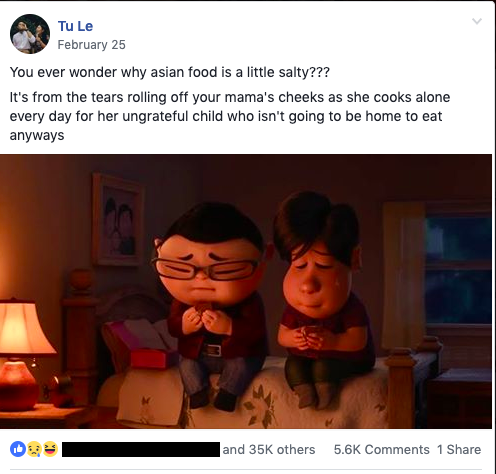
Bao, directed by Chinese Canadian animator Domee Shi, was one of a number of milestones for Asian representation in Western media in the 2019 awards cycle. The giant of 2018 was, of course, Jon Chu’s Crazy Rich Asians, which was trailed by Aneesh Chaganty’s Searching. It reductive to say that the Subtle Asian phenomenon could only have happened due to all that happened in 2018, but it would also be remiss not to acknowledge the importance of Hollywood’s international reach, and how these films are now common ground for Asians all around the world. Crazy Rich Asians particularly contributed to an awareness in the group of the global Asian diaspora, one that isn’t limited to hyphenated labels of -American or -Australian. (And then, of course, there’s the fact that SAD’s logo is a spoof of the Crazy Rich Asians movie poster.)
No one can say for sure where Subtle Asian Traits and its derivative groups are going. Facebook, as the platform for these groups, also has an uncertain road ahead of it after a controversy-ridden 2018. Erica Wu, as a Facebook employee, says that, from a company perspective, groups like these are exactly what the social media giant hopes for: bringing people together who otherwise would not have been connected. “I’ve never been in a [Facebook] group with this much engagement,” Wu added.
What is for sure, however, is that something has happened, and that something is still happening.
“This is something [we] unintentionally created — something that a lot of people have worked for years to try and create,” Ouyang said, regarding the Subtle Asian groups. “That being: a closed group of like-minded people with a high percentage of active users and interactions, daily.”
He paused. “It’s huge. People try so hard to make a group like this for their community or for their business, or whatever, and it doesn’t work. But this, this works.”
